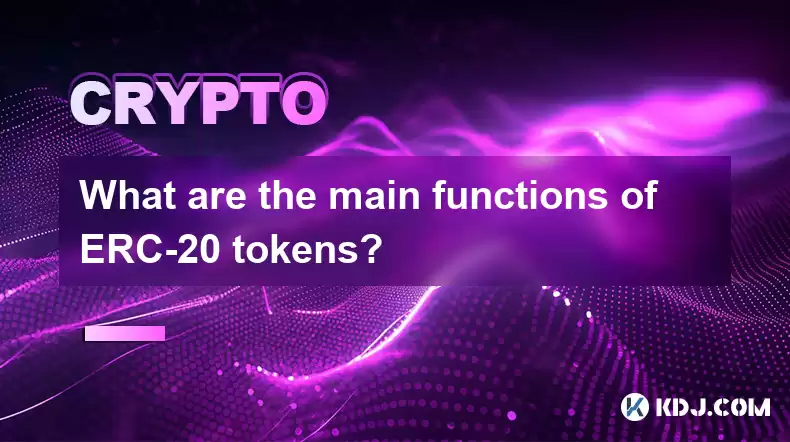-
 Bitcoin
Bitcoin $119600
0.72% -
 Ethereum
Ethereum $4175
-0.54% -
 XRP
XRP $3.207
0.44% -
 Tether USDt
Tether USDt $0.9997
-0.03% -
 BNB
BNB $795.8
-0.80% -
 Solana
Solana $178.4
-0.74% -
 USDC
USDC $0.9998
-0.01% -
 Dogecoin
Dogecoin $0.2273
-2.09% -
 TRON
TRON $0.3405
-0.28% -
 Cardano
Cardano $0.7864
-0.90% -
 Hyperliquid
Hyperliquid $44.43
1.35% -
 Chainlink
Chainlink $21.29
-0.96% -
 Stellar
Stellar $0.4411
0.55% -
 Sui
Sui $3.715
-2.92% -
 Bitcoin Cash
Bitcoin Cash $583.0
2.23% -
 Hedera
Hedera $0.2521
-2.12% -
 Ethena USDe
Ethena USDe $1.000
-0.05% -
 Avalanche
Avalanche $23.18
-1.96% -
 Litecoin
Litecoin $125.0
2.79% -
 Toncoin
Toncoin $3.311
-0.44% -
 UNUS SED LEO
UNUS SED LEO $8.996
-0.53% -
 Shiba Inu
Shiba Inu $0.00001305
-2.49% -
 Uniswap
Uniswap $10.60
-0.11% -
 Polkadot
Polkadot $3.910
-2.51% -
 Dai
Dai $0.9999
-0.03% -
 Cronos
Cronos $0.1640
2.00% -
 Ethena
Ethena $0.7932
4.93% -
 Bitget Token
Bitget Token $4.371
-1.10% -
 Monero
Monero $267.2
-1.09% -
 Pepe
Pepe $0.00001154
-3.46%
What are the main functions of ERC-20 tokens?
ERC-20 tokens, standardized on Ethereum, represent fungible assets, enabling diverse uses like fundraising (ICOs), in-game items, and loyalty programs. Their core functions include transferring, checking balances, and approving spending limits, but users must understand associated risks.
Mar 13, 2025 at 12:21 am

Key Points:
- ERC-20 tokens are standardized tokens built on the Ethereum blockchain, enabling interoperability and ease of use.
- Their primary function is to represent fungible assets, meaning each token is interchangeable with any other of the same type.
- ERC-20 tokens facilitate various use cases, including fundraising (ICOs/IEOs), representing in-game assets, loyalty programs, and fractional ownership.
- The standard includes functions for transferring tokens, checking balances, and approving spending limits.
- Understanding the limitations and potential risks associated with ERC-20 tokens is crucial for users.
What are the Main Functions of ERC-20 Tokens?
ERC-20 tokens are the backbone of many decentralized applications (dApps) and projects within the Ethereum ecosystem. Their standardized nature allows for seamless integration with various wallets and exchanges, significantly boosting their usability and accessibility compared to non-standard tokens. This standardization is achieved through a set of functions defined in the ERC-20 standard.
Fungibility and Interchangeability:
The most fundamental function of an ERC-20 token is its fungibility. This means that one token is identical to another of the same type. Unlike non-fungible tokens (NFTs), which are unique and non-interchangeable, ERC-20 tokens are all equivalent, making them ideal for representing divisible assets like currencies or in-game resources. This fungibility is crucial for their use in various applications.
Transferring Tokens:
A core function of the ERC-20 standard is the ability to transfer tokens between different addresses. This is achieved through a transfer function that allows a token holder to send tokens to another address. The transaction is recorded on the Ethereum blockchain, ensuring transparency and immutability. This transfer function is the basis of most interactions with ERC-20 tokens.
Checking Balances:
Users need to know how many tokens they possess. The ERC-20 standard includes a balanceOf function that allows anyone to check the balance of a specific address. This function is essential for tracking ownership and facilitating transactions. This is a simple yet critical function for maintaining transparency and trust.
Approving Spending Limits:
For increased security and control, the ERC-20 standard features an approve function. This allows a token holder to grant another address permission to spend a certain amount of their tokens. This is crucial for decentralized exchanges (DEXs) and other applications where a user needs to authorize a third party to access their tokens. This function helps prevent unauthorized access.
Token Creation and Distribution:
The ERC-20 standard doesn't directly create tokens; it defines how tokens should behave. The actual creation and distribution of tokens are handled during the token's deployment on the Ethereum blockchain. This process typically involves smart contracts that manage the token supply and distribution mechanism. This ensures that the token creation process is transparent and auditable.
Use Cases for ERC-20 Tokens:
The versatility of ERC-20 tokens has led to their adoption across various sectors:
- Initial Coin Offerings (ICOs) and Initial Exchange Offerings (IEOs): Many projects use ERC-20 tokens to raise capital. Investors purchase tokens in exchange for funding the project's development.
- In-game Assets: ERC-20 tokens can represent virtual currency or items within games, enabling players to buy, sell, and trade these assets.
- Loyalty Programs: Companies can issue ERC-20 tokens as loyalty points, rewarding customers for their purchases or engagement.
- Fractional Ownership: ERC-20 tokens can represent fractional ownership in assets, such as real estate or art, allowing for easier and more accessible investment.
- Decentralized Finance (DeFi): Many DeFi applications use ERC-20 tokens as collateral, facilitating lending, borrowing, and other financial activities.
Limitations and Risks of ERC-20 Tokens:
While ERC-20 tokens offer many advantages, it's crucial to be aware of their limitations and potential risks:
- Gas Fees: Transactions on the Ethereum blockchain incur gas fees, which can be significant, especially during periods of high network congestion.
- Security Vulnerabilities: Smart contracts governing ERC-20 tokens can be susceptible to vulnerabilities, potentially leading to token theft or loss of funds. Thorough audits are essential.
- Regulatory Uncertainty: The regulatory landscape surrounding cryptocurrencies is still evolving, and this uncertainty can impact the use and value of ERC-20 tokens.
Frequently Asked Questions:
Q: What is the difference between ERC-20 and other token standards?
A: ERC-20 is a specific standard for fungible tokens on Ethereum. Other standards, like ERC-721 (NFTs) and ERC-1155 (multi-token standard), define different token types with varying functionalities.
Q: Can I create my own ERC-20 token?
A: Yes, but you'll need programming skills or the assistance of a developer to deploy a smart contract that adheres to the ERC-20 standard.
Q: Are ERC-20 tokens always secure?
A: No, the security of an ERC-20 token depends on the quality of its underlying smart contract. Poorly written or audited contracts are vulnerable to exploits.
Q: Where can I buy and sell ERC-20 tokens?
A: Many cryptocurrency exchanges list ERC-20 tokens, allowing users to buy, sell, and trade them. Always choose reputable exchanges.
Q: Are all ERC-20 tokens valuable?
A: No, the value of an ERC-20 token is determined by market forces and the project's success. Many ERC-20 tokens have little to no value.
Disclaimer:info@kdj.com
The information provided is not trading advice. kdj.com does not assume any responsibility for any investments made based on the information provided in this article. Cryptocurrencies are highly volatile and it is highly recommended that you invest with caution after thorough research!
If you believe that the content used on this website infringes your copyright, please contact us immediately (info@kdj.com) and we will delete it promptly.
- DYDX Price Stays Afloat: Navigating Neutral Momentum with Technical Indicators
- 2025-08-11 20:50:12
- Superman Takes Flight: A Deep Dive into the Comic Program and Coin Medals
- 2025-08-11 20:30:12
- JasmyCoin's Bullish Momentum: Riding the Daily Gain Wave
- 2025-08-11 21:10:12
- Shiba Inu's Comeback Trail and the Meme Coin Mania: Can $SHIB Deliver a 12,000x Return?
- 2025-08-11 18:30:11
- Proof of Trust, Transparency, and User Safety: Keeping Crypto Real
- 2025-08-11 18:50:12
- Pudgy Penguins, Bitcoin Penguins, and the $22M Meme Coin Mania: A New York Perspective
- 2025-08-11 17:10:11
Related knowledge

How to purchase Aragon (ANT)?
Aug 09,2025 at 11:56pm
Understanding Aragon (ANT) and Its PurposeAragon (ANT) is a decentralized governance token that powers the Aragon Network, a platform built on the Eth...

Where to trade Band Protocol (BAND)?
Aug 10,2025 at 11:36pm
Understanding the Role of Private Keys in Cryptocurrency WalletsIn the world of cryptocurrency, a private key is one of the most critical components o...

What is the most secure way to buy Ocean Protocol (OCEAN)?
Aug 10,2025 at 01:01pm
Understanding Ocean Protocol (OCEAN) and Its EcosystemOcean Protocol (OCEAN) is a decentralized data exchange platform built on blockchain technology,...

Where can I buy UMA (UMA)?
Aug 07,2025 at 06:42pm
Understanding UMA and Its Role in Decentralized FinanceUMA (Universal Market Access) is an Ethereum-based decentralized finance (DeFi) protocol design...

How to buy Storj (STORJ) tokens?
Aug 09,2025 at 07:28am
Understanding Storj (STORJ) and Its Role in Decentralized StorageStorj is a decentralized cloud storage platform that leverages blockchain technology ...

Where to find the best price for Audius (AUDIO)?
Aug 11,2025 at 04:01pm
Understanding the Basics of Ethereum StakingEthereum staking refers to the process of locking up ETH tokens to support the security and operations of ...

How to purchase Aragon (ANT)?
Aug 09,2025 at 11:56pm
Understanding Aragon (ANT) and Its PurposeAragon (ANT) is a decentralized governance token that powers the Aragon Network, a platform built on the Eth...

Where to trade Band Protocol (BAND)?
Aug 10,2025 at 11:36pm
Understanding the Role of Private Keys in Cryptocurrency WalletsIn the world of cryptocurrency, a private key is one of the most critical components o...

What is the most secure way to buy Ocean Protocol (OCEAN)?
Aug 10,2025 at 01:01pm
Understanding Ocean Protocol (OCEAN) and Its EcosystemOcean Protocol (OCEAN) is a decentralized data exchange platform built on blockchain technology,...

Where can I buy UMA (UMA)?
Aug 07,2025 at 06:42pm
Understanding UMA and Its Role in Decentralized FinanceUMA (Universal Market Access) is an Ethereum-based decentralized finance (DeFi) protocol design...

How to buy Storj (STORJ) tokens?
Aug 09,2025 at 07:28am
Understanding Storj (STORJ) and Its Role in Decentralized StorageStorj is a decentralized cloud storage platform that leverages blockchain technology ...

Where to find the best price for Audius (AUDIO)?
Aug 11,2025 at 04:01pm
Understanding the Basics of Ethereum StakingEthereum staking refers to the process of locking up ETH tokens to support the security and operations of ...
See all articles

























































































